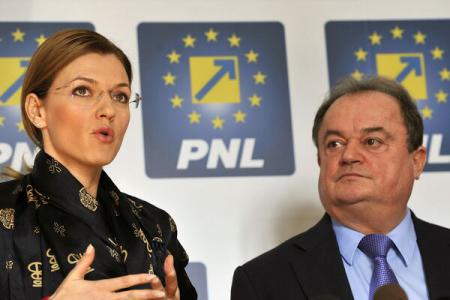74% dintre români se declară optimişti în legătură cu viitorul UE (media europeană fiind de 56%), cu 11% mai mulţi în 2014 faţă de 2013, conform ultimului Eurobarometru prezentat, luni, de Reprezentanţa Comisiei Europene la Bucureşti, citat de Mediafax.
60% dintre români au încredere în UE, iar 68% se simt cetăţeni români, în creştere faţă de 56% în 2013.
Marea majoritate a românilor (74%) consideră că UE se îndreaptă în direcţia cea bună, în timp ce numai 34% spun că România merge în direcţia corectă.
17% dintre repondenţi percep situaţia economiei naţionale ca fiind bună şi foarte bună. În ceea ce priveşte aşteptările pentru următoarele 12 luni, 35% se aşteaptă ca situaţia economică să se îmbunătăţească.
53% dintre români sunt mulţumiţi de modul în care îşi exercită drepturile democratice în cadrul UE, în timp ce doar 25% sunt satisfăcuţi de modul de funcţionare a democraţiei româneşti, în creştere, totuşi, cu 10% faţă de 2013.
Totodată, românii sprijină într-o măsură mult mai mare decât media europeană priorităţile Comisiei Juncker. Astfel, politica de extindere a UE este susţinută de 72% dintre repondenţi, faţă de media europeană de 39%, românii situându-se pe primul loc în acest sens.
La nivel naţional, românii sunt preocupaţi de şomaj şi inflaţie, precum şi de starea sistemului sanitar şi de asistenţă socială.
88% dintre cei chestionaţi apreciază că situaţia locurilor de muncă în România este proastă şi foarte proastă.
Românii apreciază pozitiv drepturile lor în alitate de cetăţeni europeni, 84% fiind mulţumiţi de dreptul de a lucra în orice stat membru.
Eurobarometrul a fost realizat în perioada 8-17 noiembrie 2014.
Au fost intervievate 1.016 de persoane, marja de eroare fiind de 3%.





